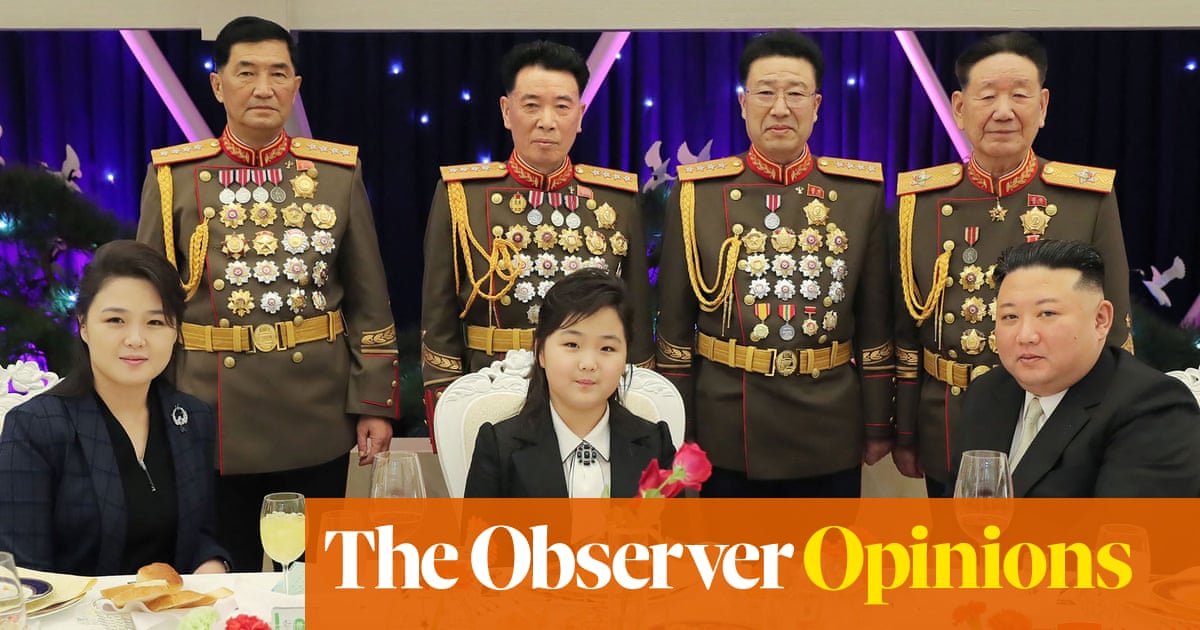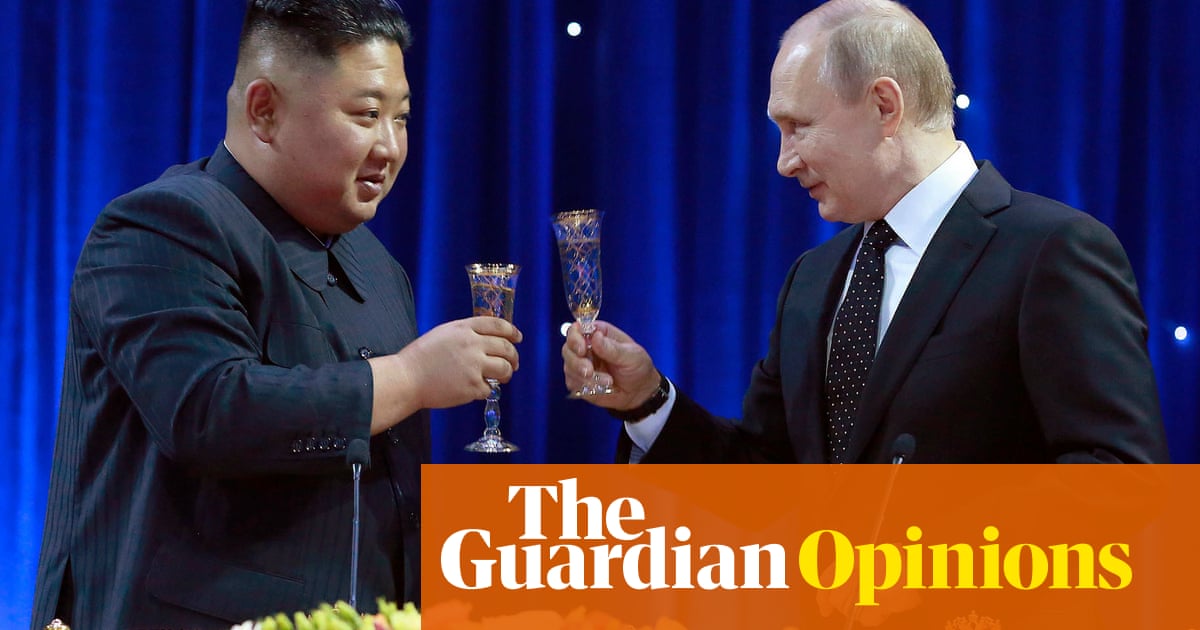
For a top Ugandan general trained by the British army at Sandhurst, Muhoozi Kainerugaba is an unorthodox kind of guy. Last October he offered 100 cows as a bride price for Italy’s prime minister, Giorgia Meloni. In another reportedly well-lubricated Twitter escapade, Muhoozi threatened to invade Kenya and conquer Nairobi, which led to his removal as commander of the Uganda People’s Defence Force. Bizarrely, he was simultaneously promoted to four-star rank.
In other late-night online interventions, Muhoozi has backed Russia’s invasion of Ukraine and praised Donald Trump as “the only white man I have ever respected”. He also has a much darker side. While leading the Special Forces Command, he was implicated in the abduction and torture of political opponents. In 2021, in a chilly echo of Idi Amin, he defended his right to take decisions after having “woken up from a drunken stupor”.
As Ugandans know to their cost, Muhoozi gets away with it because he is the son and presumed heir of Yoweri Museveni, Uganda’s authoritarian president. Museveni may finally step down in 2026 after 40 years in power. By creating a political dynasty and securing the succession before he quits, he can argue that “continuity” best serves Uganda’s interests while ensuring his own future safety.
Dynastic politics, broadly speaking, come in three main forms – dictatorial, democratic and royal – and there are signs of a resurgence. Earlier this month, Kim Jong-un, North Korea’s dictator, used an anniversary parade of long-range ballistic missiles as the intimidating backdrop for a sort of coming-out party for his daughter, Kim Ju-ae, who is thought to be 10 years old.
Who knows what the little girl made of it all? For his part, her alternately jolly and sinister dad, dubbed “little rocket man” by Trump, sent a message to the watching world: namely, “there are many more Kims where I came from”. The son of the Dear Leader, Kim Jong-il, and grandson of North Korea’s founding father, Kim Il-sung, was clearly indicating that talk of regime change is pointless. The west would have to deal with him and his kin, indefinitely.
Hun Sen, Cambodia’s Beijing-backed strongman, has similar ideas about succession. Last week he shut down one of the country’s last remaining independent media platforms, Voice of Democracy, after it supposedly criticised his son. In charge for 35 years, Hun Sen, 70, may be nervous about what comes next. In his view, it should be Hun Manet, the favoured son he has made armed forces deputy commander. Amnesty International says anyone remotely critical of Hun Sen’s family faces “ongoing repression”.
The persistence and proliferation of dictatorial dynasties reflects both familial insecurities and a global trend towards authoritarianism. In Iran, whose post-1979 democratic system is crumbling, Mojtaba Khamenei, son of the supreme leader Ayatollah Ali Khamenei, is mentioned as a possible successor. In Nicaragua, President Daniel Ortega and his vice-president wife, Rosario Murillo, the world’s most notorious revolutionary apostates, are said to be prepping their son, Laureano Ortega, for the top job.
In Syria, the mismanaged aftermath of recent earthquakes has underlined just how disastrous an impact a self-perpetuating, unaccountable and incompetent family dynasty can have on ordinary lives. President Bashar-al-Assad inherited the job from his father, Hafez al-Assad, infamous for massacring opponents. Fighting Syria’s civil war, Bashar resorted to the same brutal tactics, learned at his father’s knee. He has learned nothing since. Willingly or not, his eldest son, Hafez, may follow in his wake.
Angola, in contrast, provides a case study of how political dynasties fail. José Eduardo dos Santos ruled the country for almost four decades as president and party leader. Yet gross corruption associated with his family contributed to his downfall. His hand-picked successor, João Lourenço, turned on him, launching investigations into his children, including Isabel dos Santos, described as Africa’s richest woman. The ex-president died in exile last year.
Political dynasties have long existed within functioning democracies, too – with mixed results. The Kennedys are the best-known US example, although their prominence is diminished these days. George HW Bush unhappily begat George W Bush. At one time Trump talked up his daughter, Ivanka, as presidential heir. Canada has the Trudeaus, Pierre and Justin. In India it is hard to escape the Gandhi clan, whose latest scion, Rahul, has gone walkabout nationwide. In Pakistan, Bhuttos abound. Fortunately for Britain, there’s only one Boris Johnson.
The third category of dynasty – royal families – is, in one sense, the most threatening to a well-ordered society. Members of ambitious political families scramble to the top through ability and energy. Hereditary rulers and their offspring often lack both. They instantly acquire honoured public positions by being born, mostly, between the royal bedsheets. Then, as the UK’s young Prince Charles discovered, they begin a lifelong battle with irrelevance.
King Maha Vajiralongkorn, who ascended the Thai throne in 2016, is among the more scandal-prone royals. Dubbed the Caligula of Siam, he promoted his pet poodle Foo Foo to the post of air chief marshal and committed many other follies while crown prince. Maha seems to have calmed down of late. Now the international focus has shifted to another monarchic monster – the Saudi crown prince and alleged assassin, Mohammed bin Salman.
The arbitrary, unchecked exercise of hereditary power is a boom business in the Gulf. In Europe and elsewhere, less so – witness the Spanish monarchy’s embarrassments. In Britain, the terrible trio, Andrew, William and Harry, unwittingly conspire to advance the republican cause. Warring and arrogant princelings give dynasties of all varieties a bad name – and potentially destroy them.
That’s a welcome thought. Dynasties obstruct free choice and political change and distort open societies. They should be resisted. As a general rule, voting is always preferable to saluting.












